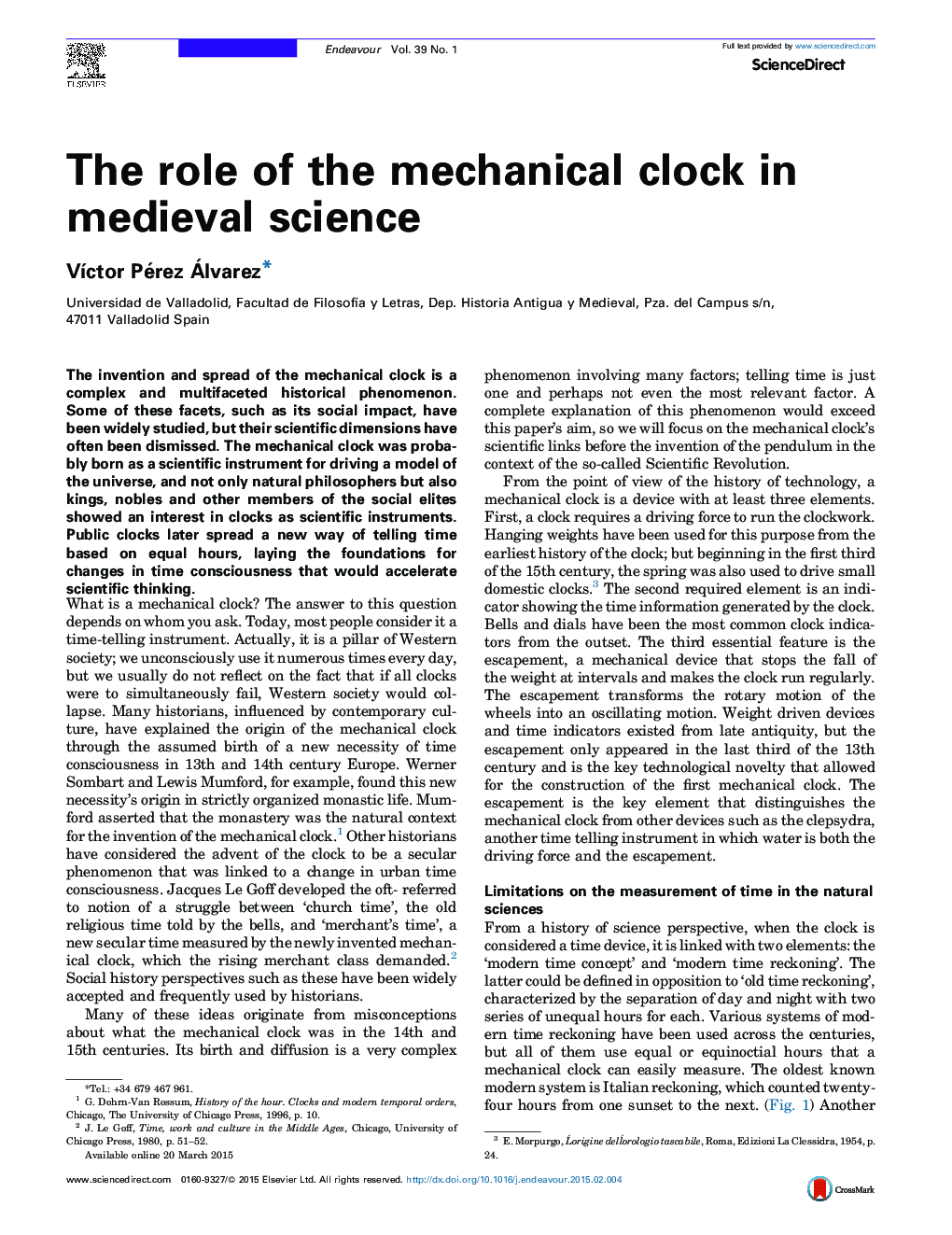| کد مقاله | کد نشریه | سال انتشار | مقاله انگلیسی | نسخه تمام متن |
|---|---|---|---|---|
| 1157746 | 959193 | 2015 | 6 صفحه PDF | دانلود رایگان |
• Some of the earliest clockmakers were also natural philosophers.
• Knowledge of natural philosophy was also a socially distinctive element.
• Clock hours are used to register significant astronomical events such eclipses.
• The mechanical clock had more significance as a symbol than as a time measurer.
The invention and spread of the mechanical clock is a complex and multifaceted historical phenomenon. Some of these facets, such as its social impact, have been widely studied, but their scientific dimensions have often been dismissed. The mechanical clock was probably born as a scientific instrument for driving a model of the universe, and not only natural philosophers but also kings, nobles and other members of the social elites showed an interest in clocks as scientific instruments. Public clocks later spread a new way of telling time based on equal hours, laying the foundations for changes in time consciousness that would accelerate scientific thinking.
Journal: Endeavour - Volume 39, Issue 1, March 2015, Pages 63–68
